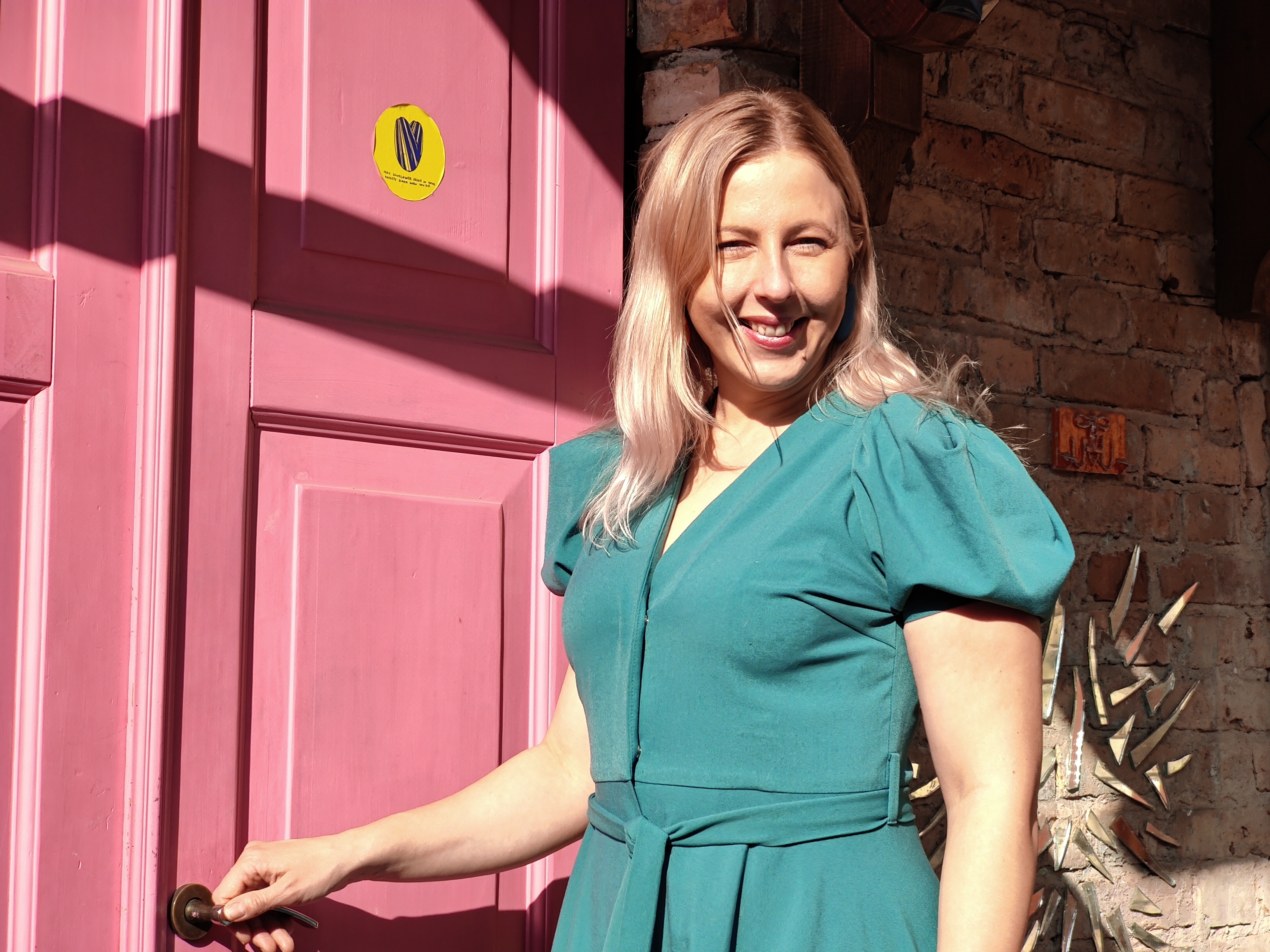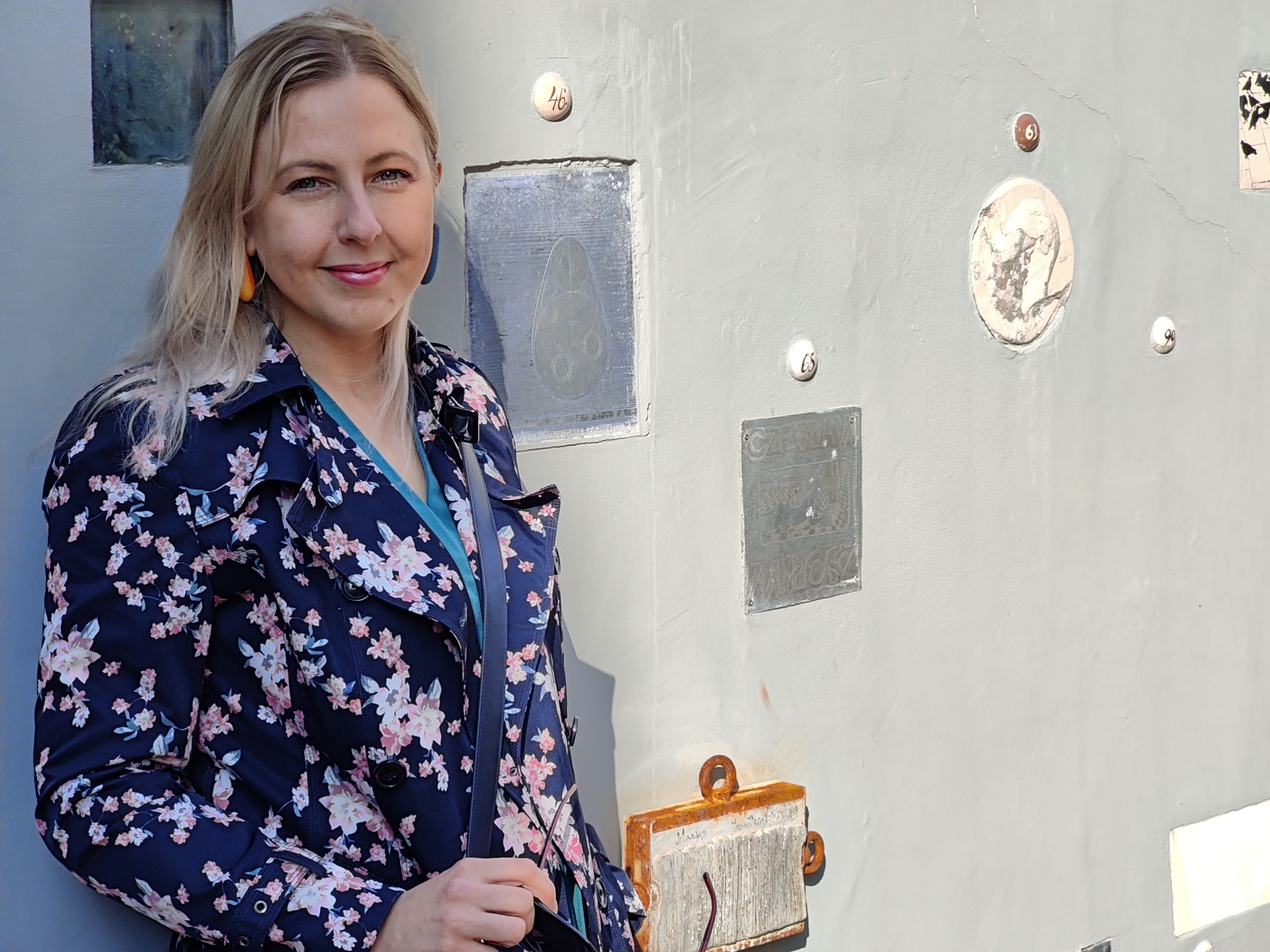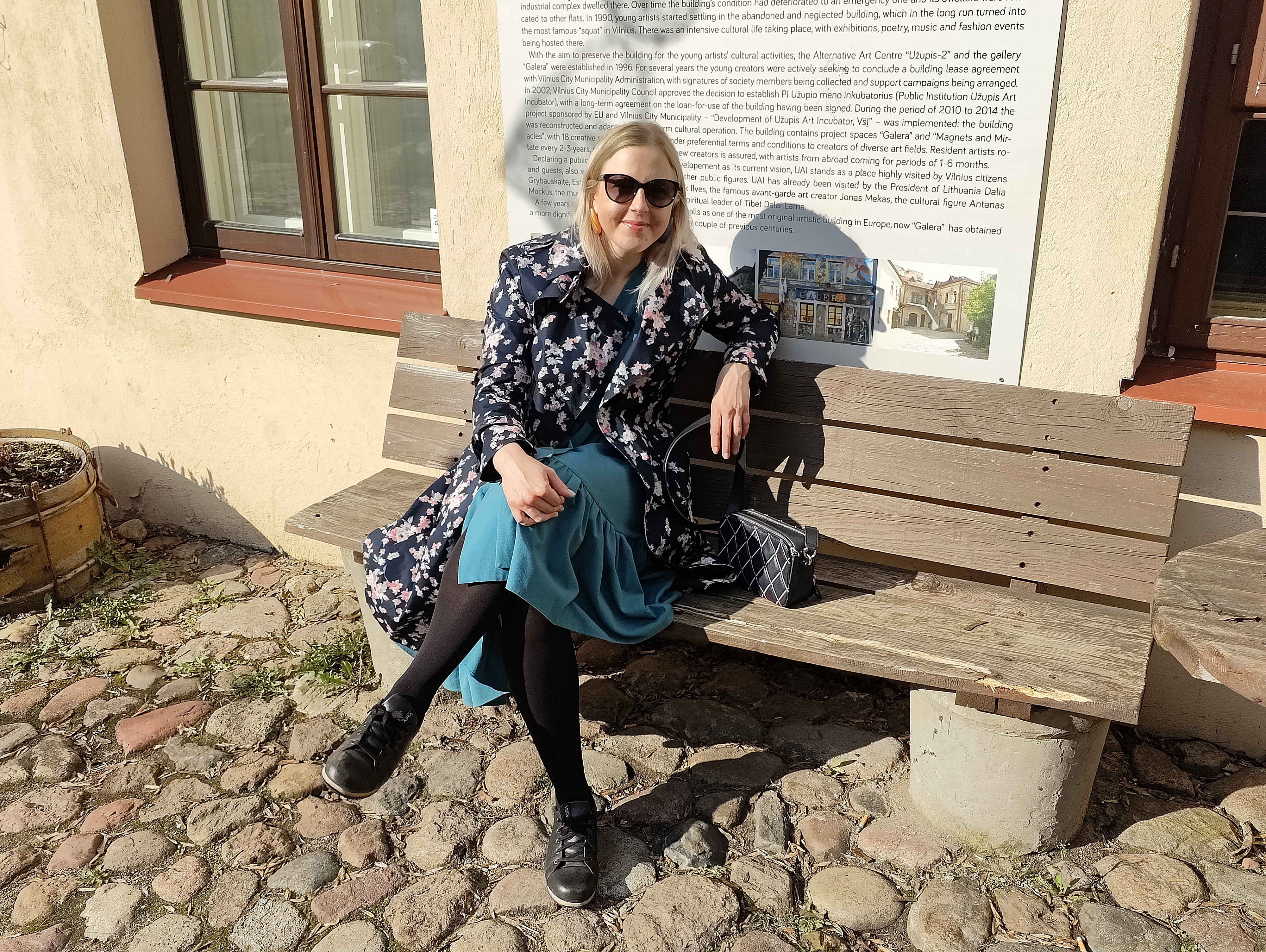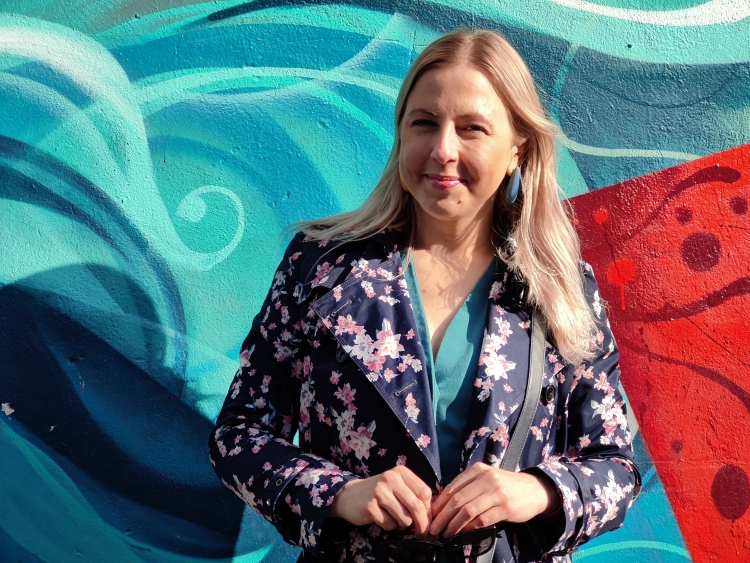Kertu has worked in very different fields, but their common denominator is communication: “I have a master’s degree in communication from Tallinn University, but my bachelor’s degree is in ethnology. I’ve dealt with internal communication in a company which produces metal containers, promoted Estonian food, agriculture and rural life, and organised the Open Farm Day and, on top of it all, worked with communication about Estonian e-services and cyber security. I was also the international client manager in a translation agency and still occasionally translate myself. So my background is very colourful.”
The Nordic Council of Ministers caught Kertu’s eye earlier when one of her former colleagues joined the NCM. With new winds blowing in her career, Kertu was offered the chance to join, which she was delighted to accept: “My work at the NCM is so varied – there are a lot of topics to cover. Firstly, it’s extremely educational. I don’t become an expert in everything my colleagues do, but communicating these topics certainly broadens my horizons.”
Kertu is never bored at work – there is always an exciting topic to work on, a colleague who comes with a new offer or she starts new projects herself that she believes would serve the organisation’s purposes. “I’ve been working at the NCM for 2.5 years now and the time has flown by – everything is always so interesting, there’s so much to do, so many people to work with,” says Kertu. Kertu is also pleased that she has a lot of freedom in her work: “It’s up to me to decide how to open up or mediate a topic, what methods to use, how to approach it. Also, all new ideas are welcomed with open arms, which is extremely motivating.”
In addition to communicating different topics, Kertu helps create new cooperation networks. For example, she recently coordinated the visit of Nordic journalists to Estonia. This visit was also the most memorable for Kertu on a personal level: “During the visit, the journalists had the opportunity to discuss important issues with Prime Minister Kaja Kallas and met with many of our partners. It was also very heartwarming to hear the positive feedback from the participants after the event.”

Nordic people surprise with sincere compliments and funny words
If you ask Kertu what has been different or surprised her in her communication work with the Nordic people, she highlights several things: “It seems to me that polite small talk is very important in the Nordic countries, more important than in Estonia. They make a lot of unexpected compliments, which are also sincere and create a very positive atmosphere right from the start. This is something we should start doing in Estonia as well.”
There have also been some nice surprises on the language front. “As I also started learning Swedish when I joined the NCM, some of the biggest surprises have been related to language and the unexpected meanings of some words. For example, the word ‘sylt’, which means meat jelly in Estonian, means jam in Swedish,” says Kertu with a laugh.
She also likes how important living a full life is in the Nordic countries. “Work is not the most important thing. As Estonians, we’re used to quick email exchanges, so the practices of Nordic people can be a little frustrating to us. Their families and personal lives are important to them first of all and only then comes work. Overtime, frantic competition and proving yourself, and burning out are not popular in the Nordic countries,” Kertu points out.
Nordic values and sustainability are a big part of Kertu’s everyday life
Kertu does a number of things to live in a way that causes less damage to the environment and help her reduce consumption: “When I buy clothes, shoes and other consumer goods, I try to make choices for the long term, which means I don’t buy the latest fashions, but choose something with better quality and perhaps more classic, and only if I really need it. My children are big fans of reusing things, but unfortunately I don’t have the talent for finding valuable things in second hand shops.” Kertu also actively sorts rubbish at home and admits that it can be challenge at times. She also prefers using public transport and walking to driving.
Solidarity and understanding each other are very important to Kertu: “I believe that all people could have equal rights and belittling or excluding someone because of their race, gender, sexual orientation, religion or appearance is not right.” She emphasises that each and every one of us is responsible for the state of our society and that solidarity and trust are very important. “Of course, one of my main principles is that everyone’s freedom (of speech, expression, self-realisation, etc.) ends where it starts threatening another person or their rights and freedoms,” says Kertu.

Can't get over or around Nordic culture
Kertu’s first contact with the Nordic countries was through literature. “Pippi Longstocking, Kalle Blomkvist, the Brothers Lionheart. And my first school trip abroad was to Stockholm at the end of year 10. These are my earliest memories of the Nordic countries,” says Kertu.
When she was in secondary school, her connection with the Nordic countries became even stronger, as she joined the youth organisation Ten Sing, which has its roots in Norway. This also took Kertu on two visits to Norway: “We could spend the nights with families and in schoolhouses, eat a lot of white bread, visit the Gaustatoppen mountain and a water park high in the clouds( the name of which I can’t remember anymore), and we performed with our choir in several churches. I have a lot of great memories of Norway and the Norwegians from my youth,” recalls Kertu and adds with a laugh that her memories of the prices are obviously not that great.
Kertu has now moved from classic Nordic children’s literature to crime novels. “I’m a massive fan of the dark Nordic crime novels. Recently, I’ve been reading the Joona Linna books by Lars Kepler, which are certainly not for the faint of heart,” says Kertu. Speaking of more serious and less bloody topics, she recommends reading Frederik Backman, who writes brilliantly and whose works have really touched Kertu’s heart. To those looking for a lighter read, Kertu recommends the adventure park books of Antti Tuomainen, “The Rabbit Factor” and “The Moose Paradox”, which often made her laugh.
Similarly, she can’t get enough of Nordic crime series, such as “The Bridge” (“Bron/Broen”) and “The Killing” (“Forbrydelsen”). Kertu says that everything starring Sofie Gråbøl and Mads Mikkelsen is worth watching. One of the film experiences that really had an impact on Kertu was “Queen of Hearts” (“Dronningen”), a Danish-Swedish co-production featuring Anne, who works with children and young people who are victims of harassment.
Kertu hasn’t listened to Nordic music in depth yet, but she’s been a big fan of A-HA since she was a child. “My colleague Grete told me about the talented Faeroese singer Eivør, who is simply brilliant,” says Kertu, passing on the recommendation.
There are only 24 hours in a day
Kertu has very little free time that really belongs to her alone, but she always tries to make the most of it. “For example, I listen to audio books when walking the dog, working in the garden or being on the bus. I also do handicrafts when I watch films or series. This kind of multitasking isn’t obviously ideal, but there are only 24 hours in a day Sometimes I also find myself in the gym...” says Kertu.
She also volunteers a lot – the Black Nights Film Festival, Tallinn Music Week, World Cleanup Day. Kertu is also the coordinator of the media team for the Jazzkaar festival. Volunteering at cultural events is very rewarding for her: “The time I contribute is rewarded with excellent and enjoyable experiences, which is a very important part of my life.”
Of course, she also tries to spend as much time as possible with her family and friends, or both: “I have a great family: my partner, three daughters, two cats and a dog, and superb friends who I would like to see more often. After all, it’s people and experiences that matter.”


